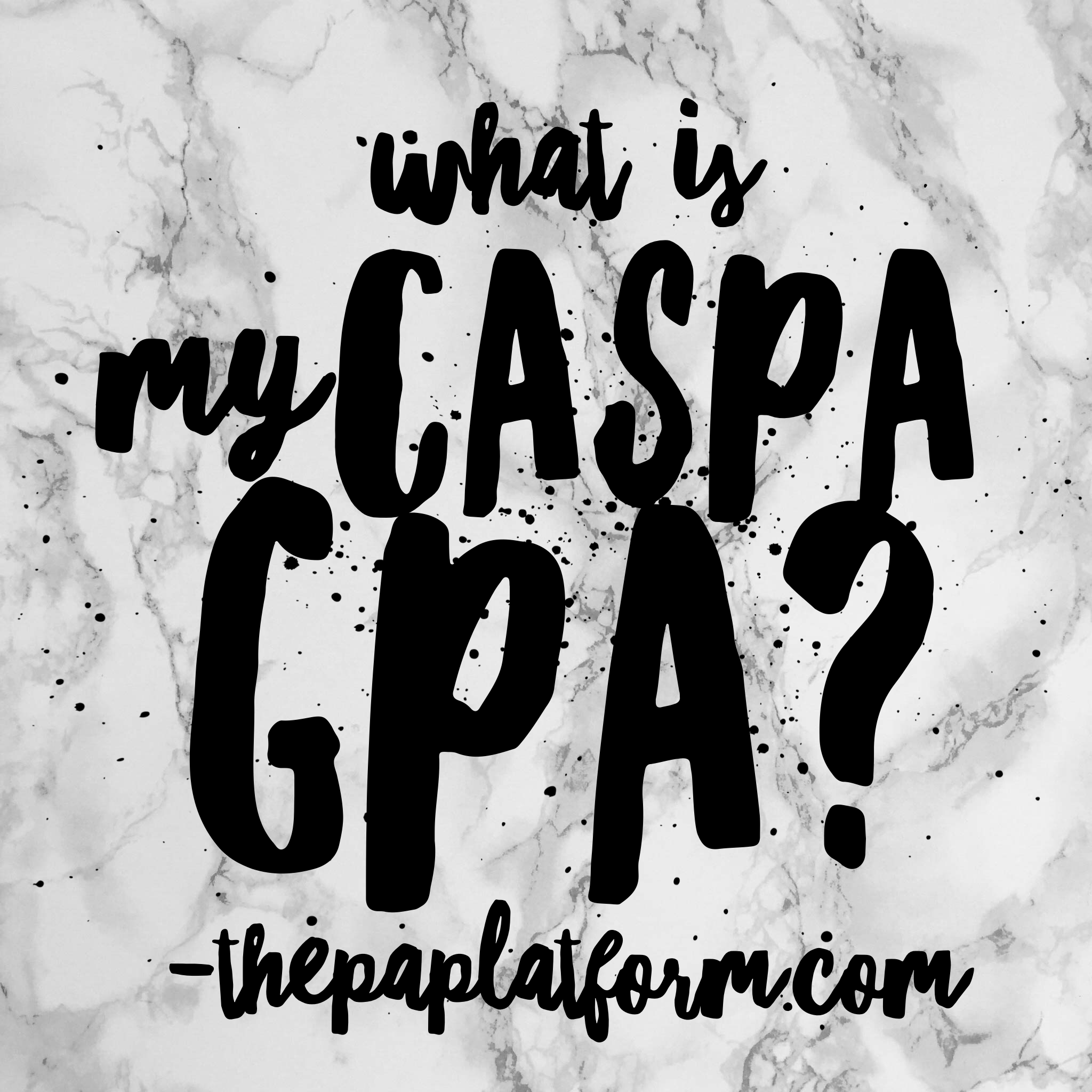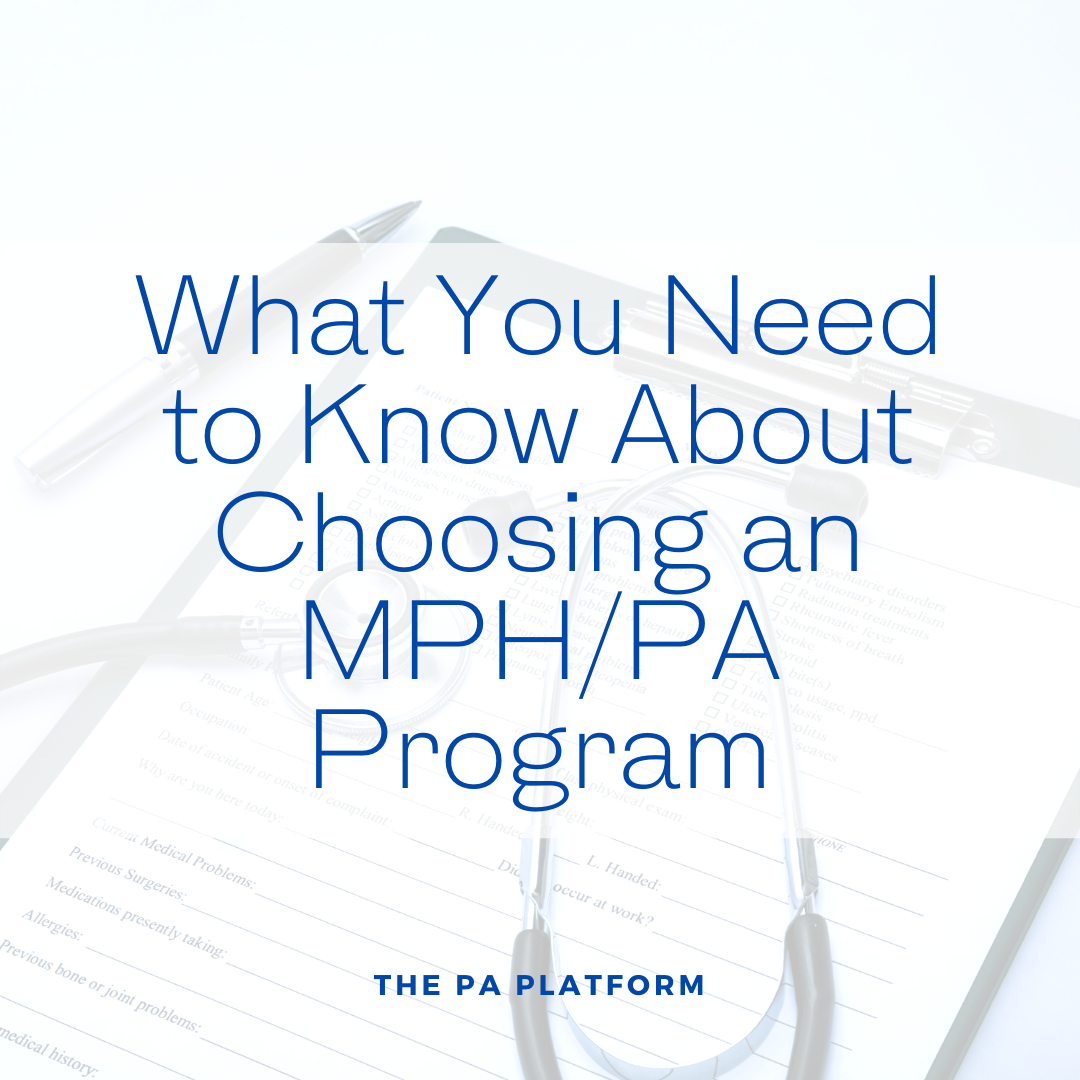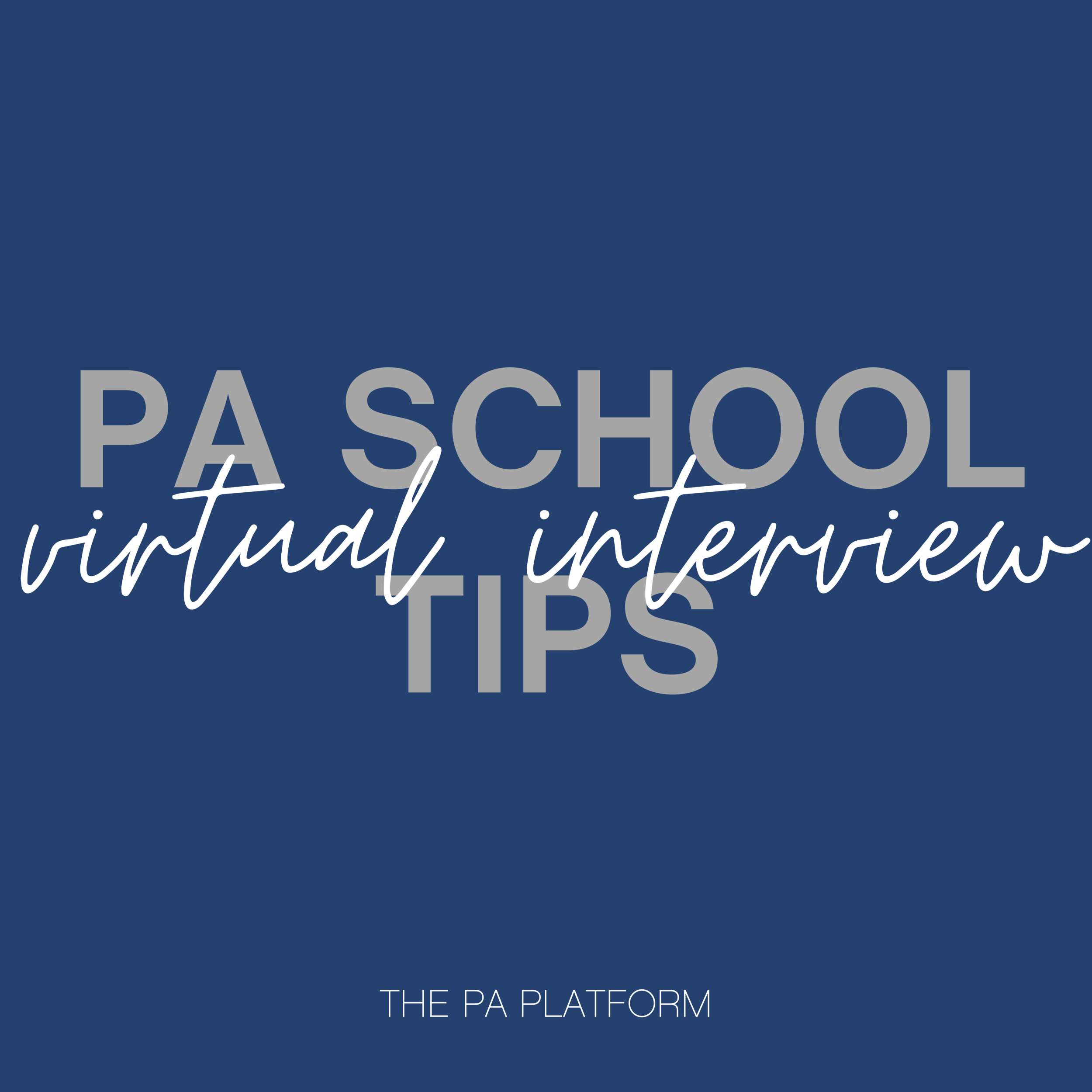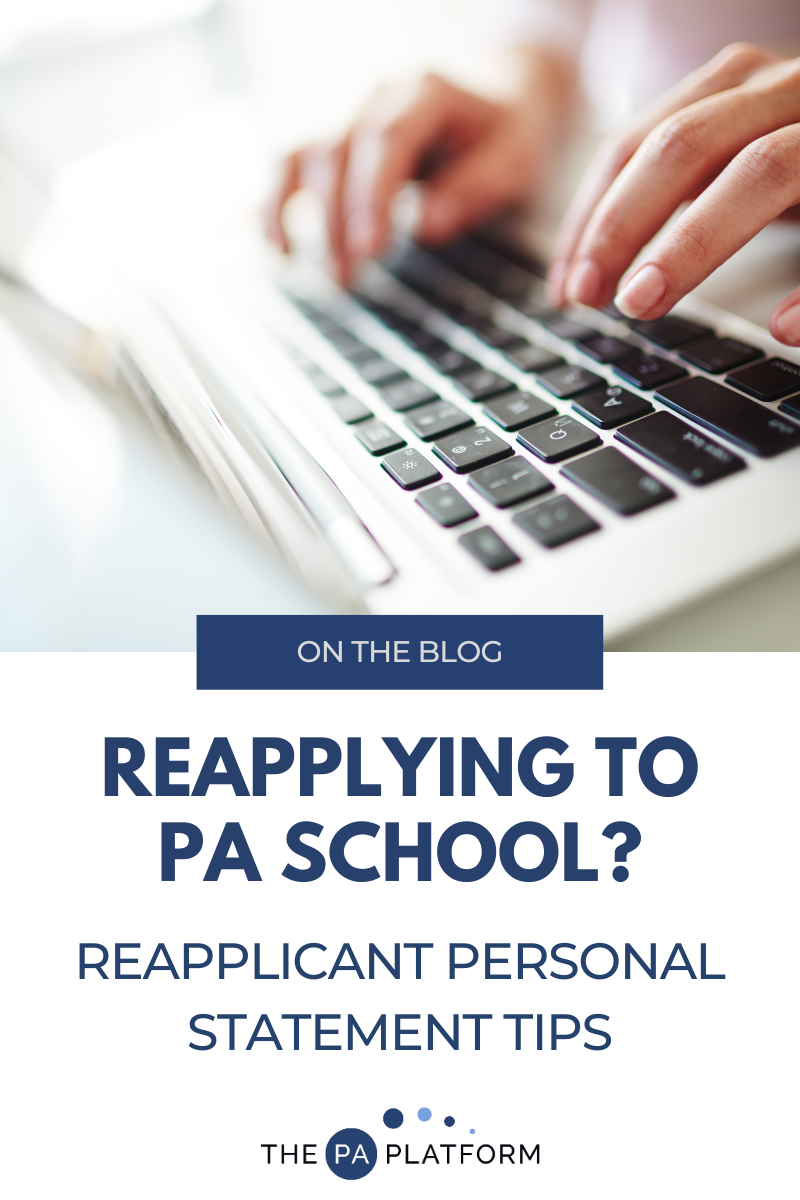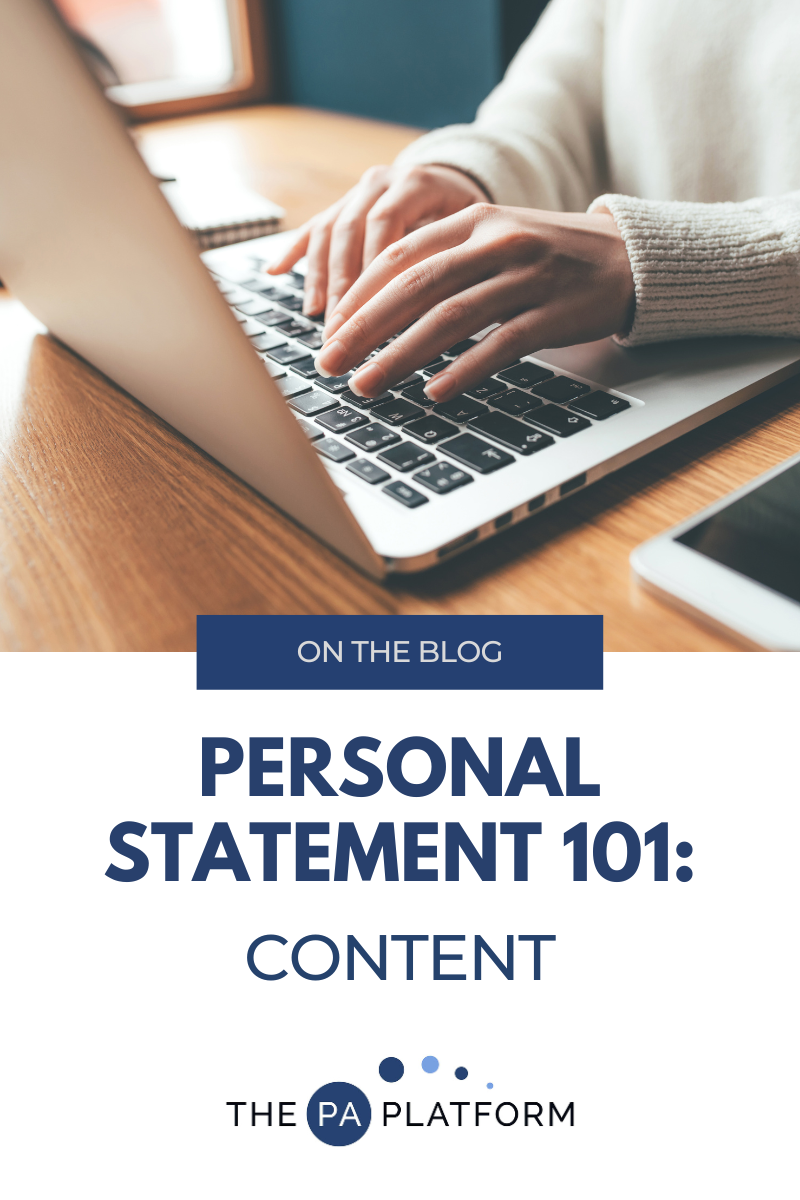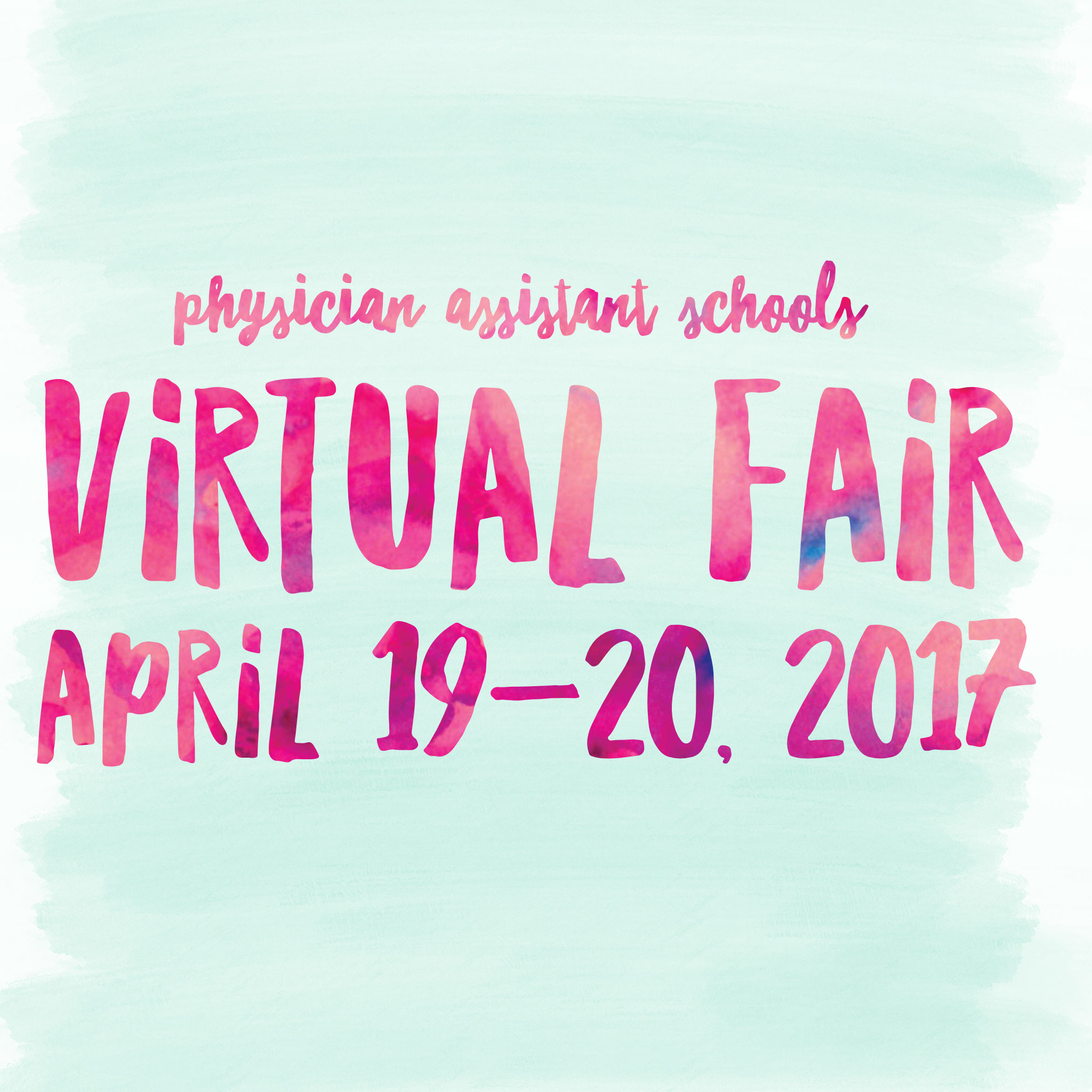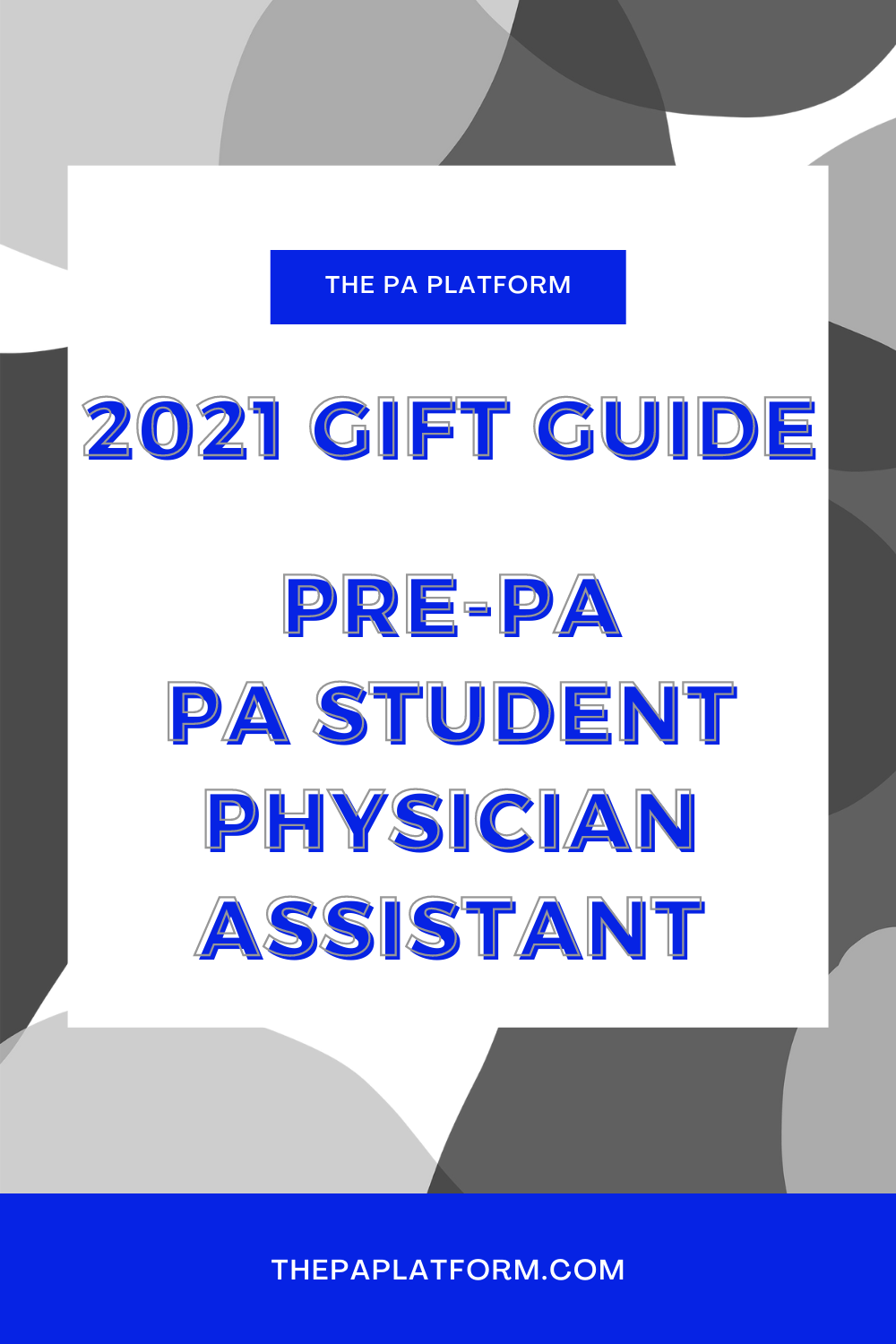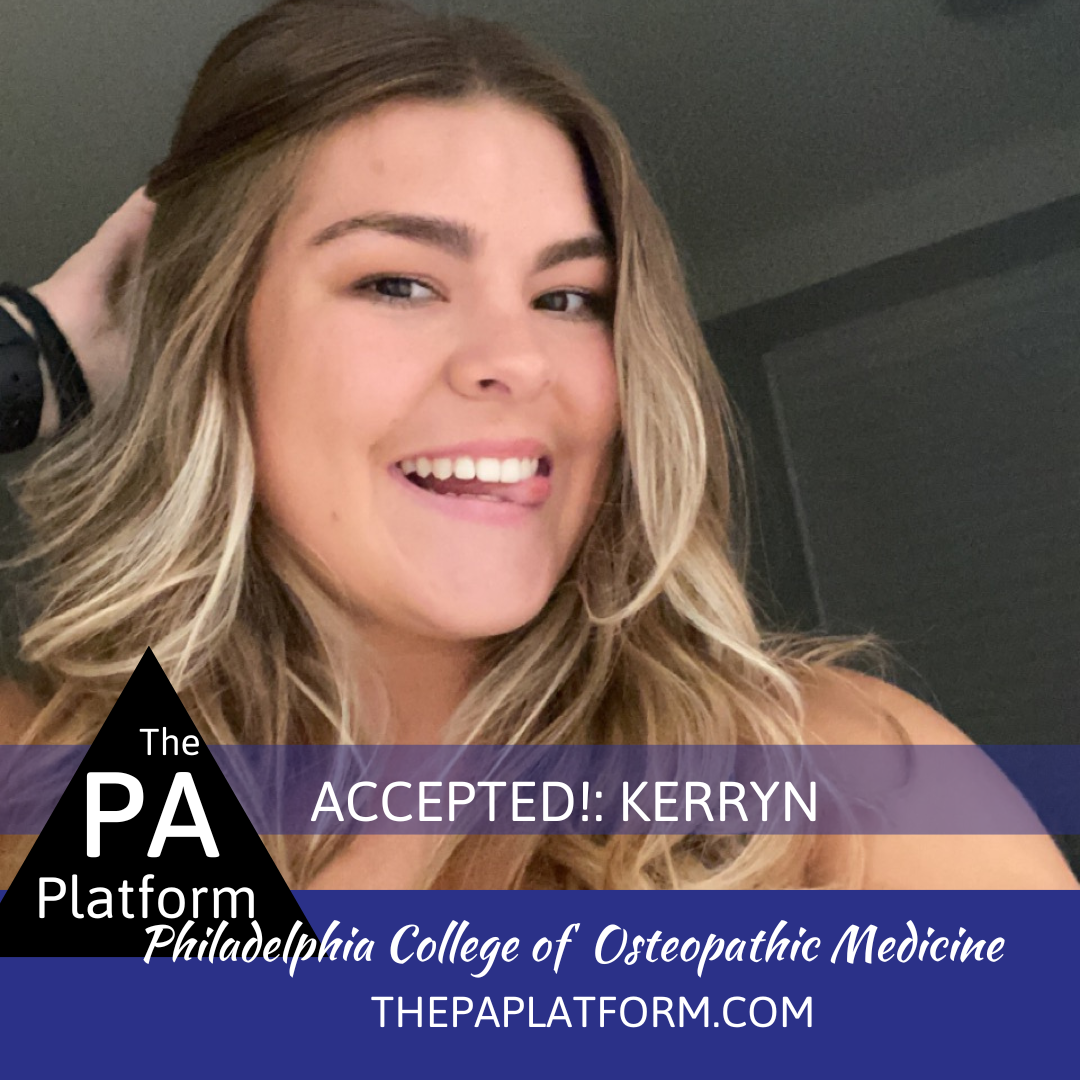I have something really exciting coming to the site this month! I'm going to be holding live monthly webinars on various topics. I recently did one for a couple of Pre-PA clubs, and here is the replay if you want to check it out. If you have a Pre-PA club that is interested in arranging a session, please e-mail me at savanna@thepaplatform.com
Physician Assistant FAQ: What is "lateral mobility?"
When pre-PA students are asked about why they want to become physician assistants, there is a term that gets thrown around a lot - "lateral mobility." I want to explain what this mean and what it actually looks like for working PAs.
The idea behind lateral mobility is basically a flexibility in choosing specialties, and the ability to move between specialties if desired. For example, I work in dermatology currently, but if I ever decided that I wanted a change (not happening FYI), I could potentially move to any other area of medicine if I could find someone to hire me. So I could go to primary care, urgent care, or even cardiology. Because PAs are trained on a general model, the knowledge base provided in school and tested on boards is over a little bit of everything. And even if a PA works in a certain area, we are expected to stay up to date with the other areas of medicine because the current model for recertification includes all areas of medicine. This is not beneficial for PAs like me because dermatology only makes up 4% of the PANCE or PANRE (boards).
This differs from physicians because at the end of their 4 years of training in medical school, they must make a choice of a specialty to pursue in order to get further training. This includes testing, research, and a match process to find where they will train for an additional 3+ years during residency. Some fields even require further training in fellowships that are an additional 1-3+ years. After all of this training and time, it can be extremely difficult and time-consuming to change specialties.
During interviews, many students will discuss this ability to change areas as the reason they want to become a physician assistant, which is fine. In the real world, most PAs tend to choose an area and stay there, so it's not like PAs are moving around all the time. That would require additional on the job training, and it is more ideal to gain experience and then continue in that field. If this is a reason that you are interested in becoming a PA, it's great to mention that in your interview or personal statement, but think beyond this one factor. Try to focus on what the profession actually entails on a daily basis and why it would be something that you enjoy on a daily basis.
If you're a PA who has changed specialties, I would love to hear your opinion on PA flexibility.
1 Thousand Instagram Followers = Giveaways!
I made a promise a while back on Instagram that if @thePAplatform hit 1 thousand followers, we would do some giveaways over this weekend and next week. And you guys did it! It actually happened while I was in Africa, but now's the time! I'll be posting most of the giveaways on Instagram, so make sure you're following me there. Next Thursday I'm heading to the big AAD dermatology conference so I'll be sharing a lot of pictures while I'm there next weekend!
Leave a comment with what you'd like to win in this giveaway or others in the future!
To make sure you don't miss out on any giveaways or updates, follow me on Instagram:
@thePAplatform
My trip to Kenya!
Last month I had the privilege of going on a 10 day trip to Kenya! It was through the ME to WE organization, and I cannot say enough about how amazing it was. The purpose of the trip was to provide dermatological care to people of the local tribes. We also got to participate in some unique cultural immersion activities, like visiting local homes and the local market. I'm going to share some pictures from my trip today, and I have a lot of posts that will be coming up so I can tell you all about my experience. I would encourage you to take any opportunity you may have to go on a mission trip!
I'll be sharing more in the coming weeks, but if you want to see a video of me kissing a giraffe, check out my Instagram - @thePAplatform
What is my CASPA GPA?
There's no way to get around the fact that your GPA is extremely important for gaining acceptance to PA school. When it comes to calculating your overall or science GPA, it is much more involved than taking a simple average of all of your grades. In this post, I'm going to explain how your GPA is calculated for CASPA since that is what the schools will be looking at. Nothing stinks more than to do the wrong calculations, think you have a 3.2, and then CASPA calculates at a 2.9. That completely alters the plan of where you'll be able to apply! The reason CASPA does these extensive calculations is to standardize GPAs across all colleges and universities is so PA programs can compare students as fairly as possible.
CASPA takes into account how many hours each course was, as well as the grade. This is called "Quality Points." These points are calculated by multiplying the amount of credit hours by the grade you received. For example, if you took a 4 hr course, and made a B, this would count as 12 quality points (4 x 3.0 = 12). To calculate your overall GPA, you divide the total amount of quality points by the total amount of credits. If you have 50 quality points, and 20 credits, that would result in a 2.5 GPA. All calculations are done based on the semester system. If you have quarter hours these will convert at 1 quarter hour = 0.667 semester hours.
There are multiple categories that are calculated separately. Each year is separated (freshman, sophomore, junior, senior, post-baccalaureate, and graduate) and then there is science and non-science. The subjects in the science GPA include Biology/Zoology, Inorganic Chemistry, Biochemistry, Organic Chemistry, Physics, and Other Sciences. You will choose what category courses fit into when you enter your courses, but these may be changed during the verification process if it appears that a course was entered incorrectly.
CASPA includes all grades in it's calculations, including courses that have been repeated. When some undergraduate programs calculate GPAs on transcripts, they will sometimes only include the grade from after the course has been repeated, which will result in an inaccurate number. Withdrawals are not included in the CASPA calculations unless they are "WF," which will count as an F. Pass/fail and AP credits are counted similarly to the W, and just as credits without associated grades. On the website with information pertaining to GPAs, CASPA has some great charts pertaining to how they count different letter grades and how grades are converted in both the US and Canada.
PA programs use these calculated GPAs differently. Some will take exactly what is calculated by CASPA with no modifications. Other programs will recalculate the GPA based on the highest grade after retaking courses or based solely on the last 45 or 60 hours of coursework. They may still look at the overall CASPA numbers, but they will place different weight on these calculations if they do their own.
For any questions I haven't answered, check out the CASPA FAQ page on GPAs.
Guest Post: 10 Tips to be the Best Medical Assistant (MA)
Taylor's back guys! I have to admit that Taylor is the best MA I have ever worked with because she does all of these things she's listed and more. I know it can be a busy and exhausting job, but if your goal is to become a PA, you want to make the best impression possible and secure that amazing letter of recommendation. If you missed Taylor's first post about why she's decided to go back to school to become a PA, then check it out here.
- Know your provider. - I have worked with the same PA for over two years, and with that time comes a knowledge of how she practices. I can quote verbatim the side effects of many drugs and know which medications she likes to prescribe and how she likes the flow of her schedule to run. While this takes time to learn, I have found it is very helpful for staying on schedule and running a smooth clinic
- Always be willing to pitch in - In the practice where I work, each provider only has one medical assistant assigned to them. During down times when the PA does not have patients, I am asked to help other providers out when I can. I always try to do this with a smile on my face because teamwork makes the dream work.
- Time Management - I like to make the most of my quiet mornings before patients get in, as well as my lunch break, to keep up with my PA’s schedule and check and make sure that patients are scheduled correctly and that our exam rooms are fully stocked.
- Take advantage of learning opportunities - At the practice where I work, we have been given the opportunity to train in many different procedures such as laser and photodynamic therapy, as well as chemical peels. Any chance to learn more, go for it (and actually pay attention). I love going to drug rep dinners with the PA I work with and getting to learn exactly how the medications we prescribed work. You are never too old to learn!
- Don’t think that you are above or below any task- When I was first starting off in the medical field, I thought some tasks I was given were pretty mundane and menial. I have come to learn this is not a reflection of my intelligence, but is necessary. The simplest task I have at work is to assemble shave biopsy kits, which any fifth grader could do. But without these kits, the providers would be unable to do one of the most important procedures that allow for the diagnosis of skin cancer. These shave kits could potentially be saving someone’s life!
- Don’t let one patient ruin your entire day - One of the most exciting things about working in the medical field, as well as one of the most stressful, is that you can never predict exactly how the day will go. There is always the one complicated patient that takes a little longer then you have allotted, and needs a little more TLC or hand holding than others. This can often throw off your schedule and can at time cause tempers to rise. Always remember to take a deep breath and take your day one patient at a time.
- Be Organized - Any type of career in the medical field requires some degree of organization. It is difficult to manage around 30 patients a day, as well as answering phone calls, and keeping up with pathology, without having a system. I do not like to leave things undone, so the best feeling for me is leaving work at the end of the day with an empty inbox. The combination of organization and time management can be the most helpful in running a smooth clinic.
- Evaluate Often - If something is not working, never be afraid to ask why and be willing to seek out ways to make your practice and office better. Savanna and I have had several conversations after certain crazy days to evaluate what is working and what is not working.
- Always Be Attentive - One of the most valuable assets to being a great MA is the ability to be one step ahead of your provider. Being able to predict what they might need for a procedure or what samples a patient would benefit from keeps your schedule running smoothly. I feel like I am the biggest help to my provider when they don’t even have to ask me for things that they might need.
- Have a good attitude. - This may sound simple and obvious, but makes the biggest difference in your work environment. Just a simple smile and a willingness to serve others can brighten someone’s day and allow for unity and less drama in the workplace.
These tips can translate to many other healthcare positions besides medical assistants. I hope they've been good reminders that you can take with you into work. I love Taylor's positivity and commitment to the patients we see. I can't even pick a favorite because I like all of her tips so much. What tips would you add for being the best medical assistant?
Interview FAQ: Thank You Notes?
A question that commonly comes up in regards to appropriate etiquette following the interview is what now? Should I send thank you notes? An email? Who should I send them to? Will it look bad if I don't send them?
No matter how you look at it, it’s always nice to get a handwritten note. If you are wanting to send something to the program to say thank you, sending an actual written card in the mail is a great option. If that's not your cup of tea, it's alright because we live in a technology era where email has become the norm. And that’s not necessarily a bad thing! An email is a quicker option to send your thanks to your interviewers. If you are planning on sending a note of thanks, it doesn’t matter which you choose, so go with whichever option you feel more comfortable with.
To know who or where to send your note or email can be a hurdle to actually being able to give your thanks. Try to get this information at your interview, whether it’s provided on a handout or by asking the program coordinator. If you forget (probably due to nerves, which is completely reasonable), contact the program coordinator after the interview, and see if they can provide the mailing address or emails that you need. If you don’t recall your interviewer’s name(s), then you may be out of luck with getting this information at a later date.
You can keep your note short and sweet because you want to be respectful of your recipient’s time. Thank your interviewer for taking the time to interview you and the opportunity to learn more about their program. If there’s anything memorable or specific that you discussed during your time with the interviewer, you can refer to that in your note to help your interviewer recall you more.
While thank you notes are a nice gesture, you don’t need to feel like they are an absolute necessity. At the end of the day, it’s a courtesy, and not a factor that will have an impact on your acceptance to PA school. So don’t let the idea of getting names and addresses and writing thank you notes stress you out. If it’s too much to handle right now, that’s ok! To be perfectly honest, I did not send thank you notes. When I went on my interviews, I was in the middle of finals and actually had to reschedule some of them, so that was my priority at the time. And I was still accepted!
Leave any advice/questions you about thank you notes in the comments below!
Guest Post: Why I Decided to Go Back to School
Hey Everyone! I'm so excited to bring you a guest post from someone I spend more time with than my husband, and who keeps me sane - the medical assistant I love the most, Taylor. I'm really lucky to work with someone who is also one of my best friends, and we have SO much fun. She also is one of the most positive people I've ever met, and she puts up with my (occasional) stress and negativity so well. I'm so proud (and sad) that she's decided to pursue becoming a PA, and I think you'll gain a ton of knowledge by following her journey here!
This one time we dressed the same for the Christmas party completely on accident!
Hey there! My name is Taylor and I work with Savanna. I have been working in the medical field for almost six years now, and as a Medical Assistant for four years. If you were to ask me in high school what I wanted to be when I grew up, the answer was always the next Katie Couric. Friends actually signed my senior yearbook with “Can’t wait to see you on The Today Show!” I come from a family with zero medical backgrounds, and honestly I was never interested in medicine. Flash forward to my senior year of college in 2010, and realized I really don’t see myself having a career in PR. I was one semester away from graduating and wasn’t sure what I wanted to do with my life.
I moved to a new city and started to look for PR jobs with non-profits. After several months on the job search, and a quick stent at my favorite quick-service restaurant (let’s just say ‘my pleasure’ is forever engrained in my head), I came home to my roommate telling me I had a job interview with a local dermatologist. This is just one example of one of the most valuable lessons that I have learned post-college - networking is everything. This roommate worked at a hair salon where my new boss had her hair done, and mentioned that she was looking for a new hire since her receptionist just got into PA school. Always be on the lookout for opportunities to network!
I asked my roommate what the job entailed, and she had no idea. All I knew is it sounded somewhat interesting, and I knew I wanted a change of scenery. I went into the interview, and the first question they asked was “Are you okay with blood?” I responded with a cautious “Sure?” The office manager proceeded to tell me the different responsibilities of the job, and the tasks I would be doing. I started off mostly as a front desk receptionist, and worked with the physician one morning a week so her medical assistant had time to do paperwork and catch up on other tasks. After a few months on the job, I could see that being in back with patients, interacting with them, and learning about dermatology, was the most enjoyable part of my job.
A few years later, we hired a Physician Assistant and I became her full time medical assistant. This was as far as I could move up the ‘totem pole’ at my job, and for several months was satisfied with where I was. For someone who had no experience in the medical field, I found it very intriguing and could see why people would want this career. When I first started this job, I knew being an MA was not something I could see myself doing my entire life. For several years I thought about possibly going back to school, but to be honest, it scared me, and I thought it would be too much. One of my greatest weaknesses is my love of comfort. I was comfortable with where I was. I knew what was expected of me and knew my job and could do it well.
This year, I finally decided it was time. I never wanted to look back in five years, and regret the fact that I wasn’t willing to take a leap into the unknown. I am single, don’t have children, and thankfully did not have student loans, so what was I waiting for? I was quite nervous when I first decided to go back to school. I have been out of college for six years, the only science classes I took were 10 years ago, and I am working full time. How was I going to juggle all this?! One step at a time, that’s how. So in September, I began. I am two classes down of the eight I need to apply for PA school, and guess what? I’m still alive! It has taken a lot of time management (Hello Kate Spade Planner for the win), saying no to dinners with friends and weekends away, and knowing that “This too shall pass.”
For all of you college students out there wanting to go to PA school straight after graduation, I am kind of jealous. I have thought recently how nice it would have been to graduate with a degree and know exactly what you wanted to do for a career. But do I have any regrets about waiting? No. I have learned some valuable lessons in my twenties. I have learned what it means to live on my own, that the real world is not as easy at it seems, that time management is very important, and that it really is never too late to chase a dream. All it takes is one little step, and that first step is usually the hardest, but is always worth it. I do not know where this road the Lord has me on is headed, but I am going to trust that “there are far better things ahead than anything we leave behind.”
If you're struggling with deciding if this is something you can do, i hope Taylor's story and insights have provided some encouragement to keep pursuing your dreams! Leave any comments or questions for Taylor below! And if there's anything else you would like to hear her perspective on, leave a comment!
Personal Statements: Tips from a Reapplicant
I'm so excited to bring you guys an awesome guest post by Meghan from the PA blog, Meghan in Medicine! Enjoy!
Ah, the dreaded personal statement talk. Personal statements can be uncomfortable, strange, and odd to write. Writing or talking about myself has never been my strong suit, and always makes me feel awkward. There is a thin line between coming off confident, well balanced, and self-aware opposed to cocky, conceited, and arrogant in person, and this line is even thinner on paper.
I was a second time applicant to PA school when I got acceptance offers. I altered my personal statement in between application cycles to really encompass who I am, what I've been through that would make me stand out as an applicant, and who I want to be as a Physician Assistant. These are such vague ideas but they helped steer me in the right direction. I was not 100% happy with my first personal statement and am glad that I reached out to get opinions on revising it.
I was fortunate enough to visit with a PA-C who was formally on an admissions committee board for a PA school about my application during my off time. She told me some harsh words about my first personal statement. She told me to nix the dramatic introduction - something I've been told to include since undergraduate workshops, and really focus on 1. what makes me stand out as an applicant 2. what I can bring to a PA class in terms of diversity, and 3. what I will bring to the table as a Physician Assistant.
To help those that are needing some direction I am going to share some major points I made in my personal statement that corresponds with the advice I was given.
What I think helped me stand out as an applicant is that I am an African American woman in a health care field that is 3% African American. I touched on that in my introduction and I gave background on why I wanted to be in the healthcare field.
I bring diversity first in my ethnicity and second in my experiences. I have taken two Medical Service Trips that I am so proud of and am thankful for. The second one made the most impact to me due to an interaction with a citizen who said he'd "rather die" than receive help from the public hospitals around him. This trip was a moment where I realized I wanted to dedicate myself to serving the underserved in medicine and in my community one day.
This section was at the end and it included my goals as an aspiring Physician Assistant. Touch on the patient care you want to provide, the kind of provider you want to be recognized as, patient advocacy, health education, etc.
I really do hope this will help someone reading this because I know how awkward it is to write an essay about yourself. Try to be as honest and forthcoming as possible. Do not include things that aren't genuine because they will notice and will take note. Remember, these admissions committees read upwards of 2,000 personal statements per application cycle, and they know what they are looking for.
Make sure to check out Meghan's website, Meghan in Medicine, for more awesome Pre-PA advice, and you can e-mail her directly at Meghan.ross12@yahoo.com if you have any questions! I'm excited to hear more of her advice once school starts, and I hope you guys will show her some love in the comments.
If you are a reapplicant make sure to check out my Youtube video PA School Reapplicant FAQ - What You Need to Know to Reapply to PA School where I answer questions about reapplying.
Tips from an Undergrad: Preparing for the Medical Profession
I'm so excited to share a guest post with you from Emily at The Organized Undergrad. She's doing an amazing job of documenting her journey towards the medical profession, including all of her experiences and process of deciding between PA or medical school. I recently did a post for her about this that you can find on her blog.
Hello readers of The PA Platform!
I’m Emily and I’m a pre-medical/pre-pa student that runs TheOrganizedUndergrad. I’m currently a sophomore in college and I’m a Health Science major/Human Biology minor. Since I have a full year of undergrad under my belt, I would love to share some insight on the things that I’m doing to better prepare me for the medical profession.
First off, I am in a sorority (Chi Omega) and I hold a leadership position as the Director of Campus Activities. This is just a fancy title that means I keep my sorority chapter involved with the school and other on-campus organizations. I act as a liaison between us and the Director of Greek Life, as well as plan various events such as Greek Week. I can’t stress enough how Chi Omega keeps me feeling supported and motivated when I’m stressing about school. It is my creative outlet away from science and medicine. I have also gained a wonderful friend group and support system by joining Chi Omega.
Second, I foster good relationships with my professors. Whether you’re pursing medical school or PA school, you are going to need outstanding letters of recommendation. Showing up to class every day, on time, communicating, asking for help, and following through are excellent ways to show your professors that you are worth recommending. Even if you make a sub-par grade in the class, if the professor knows that you have given your 110% effort, they will respect you for that. I also let my professors know that I appreciate them by sending them a thank-you card at the end of the semester. This helps them remember you with a positive impression. If possible, I take multiple classes with the same professor (if they are good!) to help solidify relationships and keep consistency.
Third, I think it’s important to keep balance in your academics and extra-curricular activities. I was the queen of “over-doing it” when I was in high school. I spread myself so thin that my grades and my relationships started to suffer. I am keeping myself limited in what I will say “Yes” to during college. I think that maintaining friendships and a social life positively impacts grades and academics. It’s very possible to burn yourself out in college by doing things that don’t really interest you. This spring, I will be taking an EMT-Basic class at my local community college to gain health-care experience and make some money for school. I am very excited for that!
Lastly, be brave, it’s amazing what people will tell you when you ask. I reach out to every medical professional that I can about their experience in health care. I have spoken with Nurses, NP’s, Physicians, and PA’s. I have narrowed down that I love the medical model, thus I am deciding between PA and MD. You can’t ever have enough information or perspective, so ask everybody and anybody what their opinions and experiences are. Also, I would caution prospective health care professionals to stay away from websites like studentdoctor.com. They are forum-based and tend to become negative and discouraging frequently. Speak only with people who have real experience and knowledge, rather than someone hiding behind a username.
I also wanted to highlight some very cool things that I have seen while shadowing! So far, I have shadowed a Cardiothoracic Surgeon, a Cardiothoracic PA, and an Anesthesiologist. As far as full-length surgery, I saw three CABG (Coronary Artery Bypass Grafting) surgeries and a Cesarean section. I also ran around the surgical unit with the Anesthesiologist and saw small portions of a vaginal hysterectomy, a robotic lung surgery and an abdominal surgery. On my days shadowing the PA, we rounded on patients all morning and I watched as he updated their medications and discharged some patients. He removed their chest tubes and also showed me a patient with subcutaneous emphysema (air bubbles under the skin) and it felt like a rice krispie treat. My best experience was with a patient that had surgery (that I watched) on Sunday morning that had a very high mortality rate. They pulled through and I actually watched them get discharged on Friday afternoon. It was very gratifying to see them make it home. A big thing that I learned from this experience is that I really love talking to patients, and I don’t think that the surgical environment is for me.
I start my sophomore year of college in just under a week, and I will (hopefully) be expanding my experiences and learning more about the healthcare profession that I love!
Please feel free to contact me through my website, www.theorganizedundergrad.com. I would be happy to answer any questions and would love to hear about your experiences!
Meet Emily from The Organized Undergrad!
A big thanks to Savanna for inviting me to post on The PA Platform!
Best of luck to everyone!
Emily (The Organized Undergrad)
So Why Do You Want to Be a PA?
This is a question that you can be expected to answer multiple time, even daily when you make the decision to become a PA. Here is one PA's answer to the common question of "Why PA?"
I stumbled upon the profession by chance. I was a junior in high school when a friend of mine casually brought up the title Physician Assistant. I had no concept of what it meant to be a PA but I was intrigued. Luckily for me the internet was swarming with information so I quickly learned the vital role PAs play in medicine.
Once you graduate from a PA Program and receive your license you can start working in the specialty of your dreams - it seemed unreal. In addition, as a PA you have the autonomy to actively manage patients beside a doctor. Your job description can widely vary depending on the area of medicine which you are employed. Although all PAs require a "supervising physician" in order to practice, this does not mean that a doctor is present during all of your patient interactions. Many PAs actually have their ownschedule of patients they independently care for. Picture this: You see a patient, obtain a history, perform a physical exam and find that they have developed an infection. As a PA you are then able to initiate a treatment plan. If your plan includes ordering lab tests and writing a prescription for antibiotics, you can make those decisions without having to consult with a doctor. However, if something seems unusual or you are not quite sure how to proceed forward, you have the comfort of asking your supervising physician for guidance. I feel that is actually one of the most comforting aspects of the profession, I am never alone. I always have someone I can bounce ideas off of and to rely on if I hit a crossroad.
Another appealing facet of the profession is you can work as little as 3 days a week in some specialties and consider yourself full time! In other words, working as a PA it is possible to establish a great work life balance. In addition, if your ever need to supplement your income there are ample opportunities to pick up extra shifts. I am constantly receiving job opportunities from recruiters for per diem and locum tenens positions. Working part time or even taking a hiatus from your career is not uncommon. In 2015 the NCCPA found 1,481 PAs were not in clinical practice due to family responsibilities. For example, I am taking time off from my clinical duties to be at home with my newborn daughter. I love having the comfort in knowing that when I am ready to re-enter practice again, I will be able to find a job suitable for me.
Duke University established the first PA program in 1965. For a profession that birthed its first three PAs in 1967, PAs have come a long way. At the end of 2014 there were 101,977 board certified PAs in the country. I consider myself lucky to be a part of the movement, and so should you!
Charishma Nayyar Mankikar, PA-C, is a plastic surgery physician assistant and the founder of PAsRISE.com
How To Prepare for PA School in Undergrad
I'm excited to share a guest post with you from a soon-to-be PA student, Aashna! Make sure to check out her site for more great advice and to follow her journey through PA school.
1. Pre-reqs
You don't have to be a biology or chemistry major to apply to PA school. I know a lot of applicants that majored in exercise science, HHP, and even in history before applying to Med/PA school. If you are a non-science major, make sure you take all the pre-reqs required for the programs you're looking at. This takes a bit of planning and something your advisor would be able to help you out with.
2. GPA & GRE
Every year PA schools are becoming more and more competitive and the minimum GPA and GRE scores required keep rising. It's important to keep in mind that the minimum required GPA & GRE scores and the average GPA & GRE scores of the accepted students are two different things. You want your GPA & GRE scores to be either in the same vicinity or higher than the average scores of accepted students. That doesn't mean that you won't get in if you have a GPA that's lower than the accepted average, but it definitely makes you a stronger applicant.
3. Shadowing
Most programs REQUIRE you to have a certain amount of minimum PA shadowing experience prior to applying to PA school. I would suggest shadowing at least two PAs in different specialties so you can a look at what all is out there and if becoming a PA is something you're still interested in. It's a good idea to start shadowing a few years in advance during your summer breaks to accumulate your shadowing hours.
4. Volunteering
Again, depending on the program, volunteering in a hospital or a clinic can count as part of your healthcare experience. It's a good idea to call and ask the program you're looking at what exactly they require. Not all of your volunteering needs to be in a clinical setting. While non-clinical volunteering won't count towards your healthcare experience, it's a nice way for you to show what else you're interested in and are passionate about.
5. Hands-on healthcare experience
Depending on what program you're applying to, they'll either have a set number of recommended or required hands-on (paid or unpaid) healthcare experience. While one program may accept shadowing and volunteering as part of your healthcare experience, others might not. At some programs, if you have 200-300+ hours of healthcare experience, you are considered a competitive applicant. But there are also programs out there that require a minimum of 1000-1500+ hours of hands-on healthcare experience. Don't let this intimidate you. These programs are usually for people who are considering becoming a PA as their second career. There are plenty of programs that you can apply to that don't require as much experience.
6. Research
At one of my interviews, I was asked if I had any research experience. Although it is not required for you to have done research in order to apply to PA school, it can bump up your chances of getting an interview invitation. And it's even better if you've been published in a scientific journal. If you think you don't have the time to do research during the school year, try to find out if you can conduct research at your university during the summer. Another option is to look up summer internships that might available for undergrads in your area.
7. Letters of recommendation
A lot of people don't think about developing a strong professional relationship with their advisors, professors, or healthcare providers they shadow/work with until it's time to apply to PA school. Try to keep in mind that the people you work with or learn from can write a stronger and more personal LOR than someone who doesn't really know your strengths or your abilities.
These are just some of the things I suggest you consider while you're preparing to apply to PA school. It's important to keep in mind that every student is going to have a different background and experience, and that is okay. The admissions committee doesn't expect all of us to be the same. It's also okay to have a gap year or two in between, as I did, and still be considered a strong applicant. As long as you're passionate about becoming a PA and are willing to work hard, you can achieve anything you set your mind to!
Hi! I’m Aashna, a Physician Assistant student, documenting my journey of becoming a PA. When I was thinking of applying to PA school, there were not a lot of resources available to me where I could read personal experiences of other PA students or practicing PAs. I decided to start blogging as a way to provide support, encouragement, and advice for anyone that is looking into the PA profession. On my blog, I share advice and tips for pre-PAs and will soon start posting about my experiences as a PA-S. Sometimes, you’ll also get to read my random musings about life and how I try to stay organized. To read more articles, head on over to my blog at apthepa.blogspot.com
The Few Disadvantages of Being a PA
I got a question today about the setbacks or disadvantages of being a PA. I've addressed a few of the disadvantages I've found in the education processes in this post, which compares PA school and medical school, but I'll go over some of the negative aspects of actually practicing in this post. And here's another post about advantages/disadvantages to think about when looking for a job.
This may not be the most popular post ever because most PAs like to think they have the greatest job every with no down sides. And since PAs have been rated as the #1 job in America for years now, it's hard to disagree. But now that I'm a year and a half into working, there are some things that I wish I had thought about starting PA school. Would any of these have been dealbreakers for me? Probably not, but maybe I can help you be a little more informed.
- Plan your vacations years in advance. - If you work in a clinic with scheduled patients, you're going to have to be really good at planning. And you're going to have to convince your family to plan ahead as well. The schedulers don't appreciate it when you ask them to move 60 patients so you can go on a vacation. My family tends to do trips last minute and not know the holiday plans very early, so I haven't been able to participate much this year. The longest vacation I took was actually to go to a conference. It's not the end of the world if you have to reschedule patients, but it's courteous to both patients and office staff to try not to if possible.
- Office hierarchy - When working in a private practice, you will be the bottom of the totem pole at times. This doesn't mean that you aren't respected and valued, but unless you own the practice, you don't get to call the shots. It's important that you don't let yourself be abused, but you also have to accept that you may end up taking shifts you wouldn't prefer, working while the boss takes off, or taking on some extra responsibilities. If you do not think you could be okay with not having the final say or having to answer to a supervising physician, then you may not want to go the PA route. As a PA, you will never have an MD behind your name. (I actually love that patients call me by my first name and I would feel weird being called doctor, so although I don't feel it's a bad thing, you might.)
- The Haters. - There are going to be some people (patients, physicians, family) who just don't get what you are doing as a PA, and who won't trust you no matter how many times you explain how you were trained. On the flipside, you'll probably have people asking you to treat them the first day you start PA school and think you have all of the answers (AKA - my grandma who calls me the cosmetologist. I work in dermatology. Same thing, right?) It can be extremely difficult to have to work with physicians who do not think you are capable of quality patient care. You can choose your supervising physician, but sometimes you can't control who they choose to work with. You can try to educate others and help them to learn about the scope of PAs, but some people may not ever be convinced. My husband is a great example. He is in medical school, and most medical students that I've encountered have no idea what PAs do. I constantly get, "How do you know that?," "You guys learn about this too?," "PAs can actually do that?" I like to use these opportunities to teach them about our profession, and I hope that as physicians they will have a better appreciation of their PA colleagues.
- Make the big bucks, but not the biggest. - PAs do great as far as compensation in my opinion, especially when you consider the amount of schooling, but you will never make the same salary as your supervising physician. Ultimately, a physician is going to hire a PA to bring in profit and allow for schedule flexibility, so yes, they will profit off of your work. It can be a little discouraging when you feel like you are working hard and being profitable for the practice, but if you negotiate well and come up with a fair contract, you can do very well financially as a PA.
- Lifetime learner (because you have to) - Continuing education requirements for PAs are intense. 100 hours every 2 years, and an exam every 10 years on EVERYTHING. So if you decide to specialize, it's gonna be tough. Physicians don't have requirements that are even close to as crazy as these, but at least you have no choice but to stay up to date.
Overall, I love my job and I wouldn't trade it for anything, but if you're on the fence maybe this will help you to choose a side!
Programs that do NOT Require the GRE
For the majority of programs, the GRE is required, but there are the occasional few that don't have a standardized test requirement. A few schools are even accepting the MCAT now as well! But anyways, this is not an all-inclusive list at this point, but thanks to Christina K., here are some of the schools that don't make you take the GRE!
Emory University - Georgia
Stony Brook University - NY
Drexel University - Philadelphia
Thomas Jefferson University - Philadelphia
PCOM - Pennsylvania
Hofstra University - NY
New York Institute of Technology - NY
Rutgers - NJ
MCPHS University (Boston)
Mercy College - NY
Loma Linda University - California
Arizona School of Health Sciences
University of South Dakota
Western University of Health Sciences - Oregon
Eastern Virginia Medical School
Howard University - Washington DC
Interview with Jorge Muniz, PA-C, Creator of Medcomic
I'm really excited to share an interview with the extremely talented PA, Jorge Muniz. While working as a PA, he has found the time to create a really cool and fun study tool! Many of us are visual learners, and if you have trouble remembering the essential pearls, then you need this book! There are a few days left in his Kickstarter campaign, so you still have a chance to be one of the first to jump on board.
What is your name?
Jorge Muniz
How long have you been a PA?
In 2013, I graduated from the Nova Southeastern University's PA program located in Orlando, Florida. Two weeks after graduating, a large group of us took the PANCE. I’m proud to say we all passed. Immediately afterwards, I began practicing as a PA in the hospital as I had secured a position in orthopedic surgery during my clinical rotations.
What inspired you to create Medcomic?
I've loved cartoons since I was a little kid. As a PA student, I realized that being in the medical field gave me the opportunity to channel my creative energy while helping my classmates study for exams.
My artwork has been influenced by the cartoons I watched as a child, which relied heavily on physical humor and facial expressions. I believe the animation seen on television today has changed a lot from cartoons like Looney Tunes that were produced in the 1940s and 1950s. I remember watching many of those reruns. Another inspiration and influence on my art has been the work of Mike Krahulik. He’s the graphic artist behind the popular video game webcomic Penny Arcade.
What do you hope to accomplish with Medcomic?
Medcomic’s mission is to make studying medicine fun and entertaining. Part of my vision for Medcomic is to expand the concept so that it becomes more comprehensive. There are plans to introduce new features and apps in the future. The first book is weeks shy of being released and there are countless ideas and possibilities to add more volumes to the Medcomic library.
What is your favorite comic that you've created?
How long does it take you to create a single comic?
One comic takes approximately 12 hours to produce. Part of that time is dedicated to reviewing the topic and gathering information that’s relevant for students to know for exam purposes. Sketching the concept and producing a comic takes time and patience. There have been instances where I’ll throw away an idea midway of completion if I feel it isn’t going to result in something that meets my standards. I always try to think, “ If I were a student, would I find this illustration useful?” There’s a value of quality over quantity.
How do you find time to do something like create a comic book while practicing as a PA?
I’ve produced most of my artwork on my days off by waking up early and working on an illustration all day. It’s a bit of a sacrifice, but it’s gratifying that I continue to help many students with the cartoons I’ve been able to produce thus far.
How can we find out more information about Medcomic and help to spread the word?
For more information, visit Medcomic.com. At the time of this writing, a Kickstarter campaign has been launched to help publish the first Medcomic book. This book will propel Medcomic into academic circles and make an impact on how traditional medicine is taught. It will also help establish a foundation for additional projects that I’m excited to share more details about in the future.
I truly appreciate everyone’s support to make the Medcomic book a reality. You can contribute by pledging or by sharing the campaign with friends and colleagues on Facebook and Twitter. Please visit Medcomic's Kickstarter page to support this project! Thanks.
Update! Medcomic's kickstarter was successful, and you can now purchase it on Amazon. (Affiliate link)
3 Questions You Need To Know For Your PA School Interview
JORGE MUNIZ, PA-C, President at Medcomic.com
Congratulations! The moment you receive news that you’ve landed an interview for PA school is an exciting time. The next step is to prepare and practice the types of questions you’ll most likely encounter during the interview process.
If you’re currently a Pre-PA student, you may have done some research and found a list of popular questions to review prior to your interview. However, have you really given thought to how your answers will differentiate you from the other candidates?
Before we talk about specific questions, I think it’s important to make a note on the delivery of your responses. Keep your answers succinct, don’t go off on tangents, and remember to smile!
With over a thousand qualifying candidates applying each cycle, getting into PA school is becoming more and more competitive each year. Here are three questions I believe you should put at the top of your list as you prepare for your PA school interview.
1. How do you think you’ll be able to handle the workload?
A common analogy used for the amount of new information we consume in PA school is that it’s “like drinking water from a firehose”. How will you convince your interviewers that you can handle this daunting task? I like to turn this question upside down by eliminating the burden from the proposed workload.
Remember that medicine is your passion. Passion is work that you enjoy doing so it doesn’t feel like work. This makes accomplishing the task easier because you don’t mind putting in the time and effort to complete it. For instance, learning to play guitar isn’t easy. It takes weeks to build the callouses to eliminate finger pain. For most, it takes months or even years to become proficient with the instrument. These people push through each day because the process of practicing their passion doesn’t feel like a burden.
Similarly, you can tell your interviewers that the workload in PA school is something you welcome as part of the process to practice your passion. You’re already an avid reader and you love learning. Be confident, tell them to give you a second firehouse.
2. Why are you interested in our PA program?
Just as you should be mindful of differentiating yourself from other candidates, don’t forget to identify the the characteristics that makes one PA program unique from another. This will support any reasons you give for being a good fit for their program. Some PA programs may have a focus on recruiting local students that want to practice medicine in rural areas, while others may place more value on a student’s ambitions to have their research published in journals. Always take a look at their curriculum and mission statement to get a better idea if one particular PA program over another is a better fit for you. Be ready to give your concise answer.
3. What is your favorite hobby?
I like this question because it’s more informal and gives you the opportunity to showcase your interpersonal skills. Your hobbies and extracurricular activities can give the interviewer a good idea of the type of person you are. It’s also a good time to provide an answer that demonstrates balance in your life, something that is essential during PA school.
Conclusion
The PA school interview is a big deal. In my opinion, it’s the most important part of the application process. Not everyone with a 4.0 GPA that gets interviewed makes it into PA school. Remember to be confident in your answers. When possible, choose responses that are unique to you. You’ll be interviewing with the top qualifying candidates, why should they choose you?
One final recommendation. Before getting into PA school, I read a book called “How to Win Friends and Influence People” by Dale Carnegie. Despite the odd title, it’s a great read that made me more aware of how important interpersonal skills are in business and in life. Pick it up and give it a try.
Photo credit: http://www.flickr.com/photos/32217894@N03/6122032240
About the Author: Jorge Muniz is a board-certified Physician Assistant from Orlando, Florida. He graduated from Nova Southeastern University with a Master's in Medical Science in 2013. Jorge is also a self-taught cartoonist and the founder of Medcomic, an educational series of illustrations that makes studying medicine entertaining and fun. To view his work visit http://www.medcomic.com
Accepted!
I think it's encouraging to see the stats of other pre-PA hopefuls and see who actually gets in! Bhmbl from the Pre-Physician Assistant page on Reddit has graciously taken on the role of being the first one!
Overall GPA: 3.52 (3.82 for the last 45 credits)
Science GPA: 3.56
GRE: 149V/146Q/4W
Total HCE hours: 200 hrs volunteer work at a hospital
Total PCE hours: 1,448 hrs volunteer work as an MA at a primary care clinic and two medical mission trips to Latin America
Shadowing hours: 50 hrs Cardiologist; 50 hrs Electrophysiologist; 72 hrs ND; and 40 hrs PAs from different specialties
Other volunteer hours: 346 hrs community service
Extra: Native Spanish speaker, two summers of cadaver dissection, and 5 letters of recommendation
Age: 28
Gender: F
How many programs did you apply to? >30 but I withdrew them all as soon as I received my acceptance at my top choice school.
How many programs did you interview with? At 4 out of the 9 interview invitations I received. Was waitlisted at the first one, rejected at the second one, accepted at the last two, and did not attend the last ones.
Any red flags on your application? courses >5 years old, W on biochem lab (re-took it and got A+), D in college algebra (took pre-calculus later on and got an A and got a letter of recommendation from the professor).
Anything you found surprising about interviews? I was quite surprised that I was asked to write an essay about a particular heart disease since I had shadowed the Cardiologists two years ago.
Were there any helpful resources (books, websites, apps) you used to get through prerequisite courses, the application or interview process? I used http://www.coursesaver.com/videos/college/ to get through the General Chemistry and Organic Chemistry courses. I highly recommend those videos! Then I used http://paprogramsearch.com/search/ to find schools based on prerequisites. There are a few schools listed there that were not up to date so it is recommended to quickly double check them with the schools' websites. To prepare for interviews, I read the book "How to Ace the Physician Assistant Interview" along with many websites with interview questions.
Any other advice for other pre-PA students? I recommend everyone to visit www.reddit.com/r/prephysicianassistant as well as www.physicianassistantforum.com. In the reddit website you can ask any questions you may have regarding applications and you will find "Ask Me Anything" posts from accepted students as well as my own posts with advice and helpful links that I used.
I definitely recommend the reddit site, and there are a lot of active users who are quick to respond to questions.
If you've been recently accepted to PA school and would like to be featured in "Accepted!" send an e-mail to savanna@thepaplatform.com
Getting into PA School with a Low GPA
So the question comes up a lot about whether it is possible to get accepted into PA school with lower grades or an overall low GPA. If you work hard enough and apply widely and realistically, there is almost always a way to reach your goals, but that can be difficult when you're staring at some C's and D's and a number that is lower than you had hoped. It is discouraging to know you are going to be quickly judged and maybe not even considered because of some mistakes in school or a really difficult schedule. I hope to encourage you and provide some hope and tips for how you can still make your dreams happen. And thanks to Bhmbl from Reddit for some of the ideas in this post. Make sure to check out the Pre-Physician Assistant page for an active forum with other Pre-PA students.
When it comes time to apply, you have to look at your overall application and determine how competitive of a candidate you are. The main factors to take into account are GPA (overall and science), grades in prerequisite courses, GRE (if necessary), healthcare experience (HCE), other work or volunteer experience, and shadowing. Most schools will have a cut-off for the majority of these categories. I'll go ahead and say that if you do not make the minimum requirements, your application will likely never make it to the PA department. They use those numbers to weed out applications, and so that they can get the candidates that are most qualified. So if you have a 3.02, applying to a program with a 3.25 minimum will likely be a waste of your time and money.
“ GPA is the best predictive factor of how well a student will do in PA school.”
One of the best ways to make up for a lower GPA is to make the rest of your application shine. Thankfully, PA school places a huge emphasis on patient care or healthcare experience (PCE/HCE), so that gives you the opportunity to show that your experience makes up for where your grades fall short. In comparison, medical school focuses on GPA and the MCAT, and they often don't even require HCE, so if you don't make the grades, the chances are much lower for finding a medical school that is realistic. You want PCE that is going to be valuable and show that you have had good patient contact, so look into taking a class to become a certified nursing assistant (CNA), medical assistant (MA), or EMT. Although it may take you longer to get to the point that you feel comfortable applying, try to be patient, and know this process is a marathon.
I also recommend doing some extra shadowing and trying to get really strong letters of recommendation. You want people who are familiar with you and who will write something that is both personal and positive.
Your personal statement is going to be one of the most important factors in landing an interview. This is what will make the program really interested you, and your goal is to show them who you are in a way that makes the admissions committee want to meet you in person. While there are differing views on what to talk about in your personal statement, you can choose to discuss your lower grades or GPA if you feel like not addressing this may prevent you from getting an interview invitation. It's not a bad idea if you feel like you can address it in a way that does not look like you are making excuses, and shows how you have improved and overcome the situation. Your GPA or a bad grade should never be the sole focus of your essay.
If you are applying with a lower GPA, be prepared to reapply. PA school is getting more competitive every year, and it is common to not get acceptance the first year of application. You can use that year to prepare more for PA school, and to improve your application. If you feel like your GPA was the only thing that prevented admittance, then take some additional courses to both raise your GPA and show that you are capable of rigorous coursework even though you may have had some stumbling blocks in the past. You can repeat courses you had lower grades in or take some more advanced science courses. It is very important that you do really well in these classes because you do not want to further jeopardize your GPA or your application. If you do repeat some prerequisites and do better, it's important to note that CASPA averages all grades in their calculations. Here is a post all about calculating your CASPA GPAs. You may want to consider schools that recalculate your GPA based on the higher scores or look closer at the last 40 or 60 hours of coursework. Here is a list of some schools that have post-bac classes you may want to look into.
While in a gap year, you want to be improving your application in other ways as well, such as volunteering and HCE, but not at the expense of your coursework. It's important to find a good balance because you want to be able to show how your application has improved during the next application cycle.
When choosing which schools to apply to, you'll need to check their minimum requirements before applying. It's not worth your time or money to get an instant rejection based on your GPA. Most programs list this on their website and you can find it in our Program Spotlights as well.
An interesting option that has come up for students with lower GPAs is to go the nurse practitioner (NP) route, as opposed to the PA route. While I am in no way the expert on all things NP, it's a reasonable option because depending on the state, most NPs and PAs operate quite similarly. I think a lot of that has to do with who you are as a person. This path would mean going to nursing school to get an RN, and most are 2 year programs once you have the correct prerequisites. Some NP programs require experience working as a nurse before applying, and there are some accelerated programs as well. There are many more nursing programs than PA programs, and they are typically easier to get into to at the BSN level.
If you are struggling to decide if you should apply to PA school, where you should apply, or what courses you may want to take or re-take, make sure to get some advice. Whether that's a PA, a student advisor, fellow students on Reddit, or through a Pre-PA assessment here, it's always better to have a neutral party evaluate where you're at and offer their opinion.
Comment below with any advice or questions about GPA!
Physician Assistant Blogs
While there isn't a ton of information out there in the blog world, and many of them do not stay recent, if you look hard you can find some good posts. Here is a list of the blogs I've been able to find, so let me know if you run a site or know of any others!
I'm A PA - A site from the AAPA, and their blog does update a few times a month, and you could write for them if you have an interesting perspective.
Jay the PA - A firsthand look at what it takes to become a PA from the Pre-PA stage to being accepted and starting school!
With Ashley Kay - Ashley is a current PA student sharing her journey through school. She has beautiful photography on her site as well!
White Coat Clutter - Stephanie is a PA who is transitioning to dermatology and shares a ton of tips for Pre-PA students and current PA students.
Life as a PA - Andrea is an amazing Pediatric ICU PA who is very open about sharing her lifestyle and giving back to the PA profession. Make sure to follow her on Snapchat too!
PA Student Essentials - A site run by PA students and the SAAPA
Meghan in Medicine - Meghan is a soon-to-be PA student who is doing an amazing job showing the details of how she's accomplishing her goals.
The PA Life - Jourdyn is a current PA student at UW-Madison blogging about her time while in PA school.
Reddit Pre-PA - Not exactly a blog, but more like a forum to ask questions to an active community and look up information that others have asked about in the past.
PA Boards - This is a great resource with so many options - podcasts, blog posts, PANCE review, YouTube videos, and even an app!
Musings - The JAAPA blog. This is a great resource to stay up to date with issues facing PAs.
ADVANCE for NPs & PAs - They have a few different blogs, including one for students and one for new grads.
Lauren Does Life - A new blog with an awesome looking site. Lauren has just started her clinical year of PA school and it looks like there are some great posts coming in the future!
Lindsey's PA Blog - Lindsey is currently a PA student at Albany College and has been writing periodically about her experiences there.
Hay the PA - Hayley is a PA student at University of Kentucky and she has a beautiful site where she shares tips for both PA school and living a healthy lifestyle.
PAs RISE - A resource for pre-PAs, PA students, and physician assistants where they have access to interesting reads, mentorship, and FOAMed (free open access medical education). This site encourages the PA community to contribute their thoughts, expertise, and opinions while shining a spotlight on the advances PAs and students are making within the community.
The Organized Undergrad - Follow Emily's progress through undergrad as she works towards a profession in the medical field, and tries to make decisions between pursuing PA or MD.
Medicine & Manicures - A great combination of PA school and fashion. Kristina just graduated from Campbell University's PA program, and she will be a derm PA as well! (Best choice ever.)
PA Fanatic - Brittany is transitioning from a Pre-PA to PA-S, and sharing all of her tips and advice along the way.
Physician Assistant Blog - A blog with unique posts that are a little different from the typical things other sites write about. The authors also wrote the PANCE/PANRE Study Guide, which is a resource to use during school and when studying for boards.
AP the PA - A new blog from Aashna, a student who is about to start PA school. Great information so far!
Pre-physician assistant blog - A bunch of interviews with various students and PAs. Especially helpful if you're interested in schools in Texas.
New PA-C Here - Not updated recently, but she posted a good bit during school about her experiences
Trust Me, I'm a PA Student - A well-researched blog from a current student at UTSW
The White Coat Investor - The best blog for financial advice if you're working in medicine. Not specific to PAs, but definitely helps everything to be slightly less confusing and provides great resources.
Physician Assistant, Finally There - Not updated recently, but a lot of information from school and resources as well.
Women in Surgery - This is not specific to PAs, but seeing as there are plenty of women PAs and PAs doing surgery, it's a great reference.
Food, Fitness, & Family - Although the title may not seem to fit, this is a blog of a current PA student and how she survives. And shes's a mom!
PA-C Hustle - A PA and mother, and how she balances both jobs.
PA Journey - Follow along with a PA student on the journey to becoming a PA.
xohollyd - Holly is currently in her didactic year of PA school and provides updates on her blog so you can see what it's like to go through PA school.
Stethoscope and Sparkle - Follow Erin through her time in PA school, and look for all of the advice she has for Pre-PA students
Apple A Day PA - Demi is currently in her clinical year at Florida International University in Miami, and she blogs about her experiences and offers advice for clinicals.
White Coat Dreaming - Alex is in her 3rd year of PA school and on the tail end of clinicals. She has some great advice from fellow students and throws a personal touch into her posts too.
Lynzy and Co - Definitely more of a lifestyle blog, but Lynzy is a mom, but also a part-time PA. She does a great job showing how she balances life.
The PA Pursuit - Chelsea is a PA student who has beautiful pics on her site and her Instagram as she offers advice to hopeful PA students.
White Coat Whitney - Whitney is a second year PA student sharing advice about PA school and for Pre-PA students.
PA-Cents - A new kid on the block that is discussing all things having to do with the financial side of PA school and being a PA. If you have any questions about money stuff specifically for PAs, make sure to check it out!
Top 100 Interview Questions for PA School
Interview Questions for PA School:
Here are my top 100 interview questions that I have come up with from personal experience and research. During Mock Interviews, we run through some of these questions and any others that may be specific to your application, and then discuss your answers to determine any flaws or weaknesses. It's also important to identify any bad habits you may have. Comment below with your answers to these questions and we can evaluate your answers!
For more questions and interview advice, check out the Physician Assistant School Interview Guide and the Physician Assistant School Interview Course.
Traditional Questions
Tell me a little bit about yourself.
Why do you want to be a PA? (as opposed to a doctor or NP?)
What is the difference in the nursing model and medical model for teaching?
What does a PA do?
What makes you a good candidate for our program?
What qualities or skills do you have that you think would make you a valuable student and classmate?
What would you bring to the class?
How have you prepared to be an effective PA?
What do you think is the biggest challenge facing PAs?
Why do you think you would be successful in PA school?
How do you study best?
How do you deal with stress?
How are your time management skills?
What was your most challenging course of undergrad and why?
Why do you want to go to this specific school?
What is appealing about “location” of school?
What are you looking for in a PA program?
Have you applied elsewhere?
What is your biggest weakness?
What is your biggest strength?
Do you work better by yourself or with others?
Is there a specific specialty or ideal job that you see yourself in as a PA?
What qualities make a successful PA?
How do you feel Obamacare will influence PAs?
How do you see the role of PAs changing in the future?
What are some difficulties that you feel like PAs are facing?
Do you feel like you would be limited by any of the regulations on PAs either nationally or in the state you plan to work in?
Are there any laws that you feel like limit the PA profession unfairly?
Are there any laws that you feel should be passed to further the progression of the PA profession?
How would having a family/children affect your performance in PA school? (This is a valid question if you mentioned anything about this in your personal statement, or if you bring it up.)
How do you think being a younger/older applicant may affect your performance in the program?
Tell me about your support system?
What are your plans if you are not accepted to a PA program this year.
What are your thoughts on the newer online PA programs?
What are your thoughts on the new bridge programs from PA to MD?
What are your thoughts on the name “physician assistant,” and the push for a name change to "physician associate."
Tell me about your support system
Reassure me that you are not going to fail out
What do you know about the history of the PA profession.
Where do you see yourself in 5 years?
Can you explain your….lower grade/low GRE/lack of shadowing or HCE?
If you could do anything differently in undergrad, what would it be?
Who is the most important member on a healthcare team?
What are your goals in medicine?
Tell me about the last physician you worked for.
What are some possible negative parts of being a PA?
When did you decide to pursue PA school?
Was there anything unique you observed while shadowing?
Define professionalism.
Behavioral Questions
What is the most selfless thing you have done?
Describe a time when you have had to overcome adversity.
If a student fails a test, is it the student’s fault or the teacher’s fault?
Describe a situation you have had with a difficult patient.
Describe a situation with a patient that had a significant impact on you.
How do you deal with high stress situations. Give an example
Describe a time that you have struggled academically, and how you dealt with it.
Your supervising MD asks you to go administer a medication to a patient. You do not agree with his decision and feel it could harm the patient. What do you do?
You see a co-worker taking medication from the dispense cart and putting it in their bag. What do you do?
You are at a baseball game and the woman in front of you has a very suspicious mole that you suspect could be melanoma. What do you do?
You are in a surgery and the anesthesiologist starts making inappropriate comments about the patient once they are asleep. What do you do in this situation?
A patient you are seeing insists on seeing an MD. How do you handle this?
Describe a situation you have had with a patient who made an impact on you.
You have a patient who is not proficient in English, and you do not know their language. What can you do to assist with their difficulties?
Describe a time you had to make an ethical decision.
You’re in an OR and have suspicions that the surgeon may be intoxicated. What do you do?
You are about to leave for the day and realize that you gave a patient medicine they are allergic to. What do you do?
You are seeing a Jehovah’s Witness patient that does not accept blood transfusions due to religious reasons, but it would be life saving. What do you do?
Your patient is diagnosed with HIV, but doesn’t want to tell their partner. What do you do?
A classmate offers you an old exam they have before the test. What do you do?
Tell me about a time you’ve had to use teamwork to solve a problem.
Do you think it’s more important to get patients seen or spend time with patients?
You prescribed a 13 year old birth control, and the pt’s mother calls and is angry. What do you say?
Sometimes you may disagree from others in instances that you think they may be making a mistake. Talk about a time when you had to disagree with someone else to get a positive outcome.
Give an example of a situation in which you did more than was expected of you.
Multiple Mini Interviews (MMI)
If you were a tree, what kind would you be and why?
If you were a color, what color would you be and why?
If you were dressing up to go on a halloween party for kids, what would you dress up as and why?
Who, living or dead, would you invite to dinner and what would you serve them?
What kind of car would you be?
What would you do if you hit your neighbor’s dog?
Give directions to someone for how to put on gloves
Help this student complete the following task…
Interpret the graph shown in the room.
You discover that one of your classmates has become romantically involved and moved into a house with her community-based clinical preceptor in your health professions training program. What should be done, if anything? Enter the room and discuss your position with the interviewer. (Jones, et al., 2011)
A friend in your class tells you his mother was recently diagnosed with breast cancer. He is overwhelmed by his studies and may drop out of the program to spend time with his mother. How do you counsel your friend?
Joe is a pizza delivery worker. The pizza shop he works for has a 30 minutes or less delivery guarantee or else the customer does not have to pay. On Joe’s most recent delivery, he spots a woman bleeding on the street. There is no one else around and the woman seems to be unable to move by herself. However, Joe knows that if he returns empty handed again, he will be fired from this job which he most desperately needs. What do you think Joe should do? Justify your solution in terms of practical and ethical considerations.
“Liberation Therapy” (LT), a vascular operation developed to potentially cure multiple sclerosis (MS) in certain patients, has recently come under very serious criticism - delaying its widespread use. Among other experimental flaws, critics cite a small sample size in the original evidence used to support LT. As a healthcare policy maker, your job is to weigh the pros and cons in approving novel drugs and therapies. Please discuss the issues you would consider during an approval process for LT.
Because of federal and provincial subsidy policies and return-of-service agreements, international medical graduates (IMGs) now make up an increasingly large proportion of rural doctors. As a consequence, the shortage of doctors in rural areas has prompted many family medicine residencies to increase their quotas for IMGs in their programs. Effectively, this development is leading to a relative reduction in spots available for Canadian medical graduates. Please discuss the pros and cons of such a development.
Discuss one of your pastimes outside of school and how the skills you acquired from this activity will help you in your career.
You are a family physician seeing Jane, a 67 year old woman with a recent history of multiple fragility fractures. You diagnose her with osteoporosis and prescribe some bisphosphonate drugs and other pharmacological treatments. Jane tells you that she has heard some good things over the internet about alternative medicine treatments such as Chinese medicine, and she is adamant on trying these as well. You are concerned about the use of these alternative medicine treatments and the possible negative effects they could have on Jane’s health. How would you handle the situation and what would you recommend Jane do? Discuss any ethical considerations that are present.
You are on the committee for selecting a new Dean of Science. What characteristics and/or qualities would you look for when selecting an effective dean?
In June 2011, the infamous Vancouver riots took place after their hockey team lost in the Stanley Cup Finals. Stores were ransacked and cars were burned. Hundreds of people were injured and sent to overcrowded hospitals. As the police chief in Vancouver, what measures or policies would you put in place to make sure this does not happen again?
Clostridium Difficile (C. difficile) is a type of bacteria that increases its activity with most antibiotic use, and is therefore very difficult to treat. Research shows that the most effective way to prevent the spread of infection is frequent hand washing. However, many people have flat-out refused to wash their hands in hospitals. The government is contemplating passing a policy to make it mandatory for people entering hospitals to wash their hands or else risk not being seen by doctors and being escorted out of the building against their will. Do you think the government should go ahead with this plan? Consider and discuss the legal, ethical or practical problems that exist for each action option and conclude with a persuasive argument supporting your decision.
Discuss an experience that allowed you to learn something important about yourself. How will this lesson help you succeed in your career?
Random Questions
If you could have any other job, besides being a PA, what would you do.
If you were to win the lottery for 100 million dollars. What would you do? Would you still want to be a PA?
What is the last book you read.
What is your life saying?
What are your hobbies outside of school?
Is there anything else I need to know about you?
Now that you have an idea of the questions your interview is going to ask, put yourself on the spot with a mock interview! These interviews are conducted by practicing PAs who have been right where you are now.
A One-on-One Mock Interview includes:
60 minutes total with a practicing PA
Personalized interview experience based on your application
Tips and techniques for your specific interview
20-30 minutes of questions
Feedback following Q&A session
Written report with questions, answers, and feedback
Instructions to record session on Windows or Mac
Resources
http://www.thepalife.com/the-top-46-physician-assistant-applicant-interview-questions/
http://sciencepreps.iupui.edu/physician-assistant-program-interview-questions
http://sciencepreps.iupui.edu/physician-assistant-program-interview-questions
http://doseofpa.blogspot.com/2014/03/physician-assistant-school-interview.html
https://www.aaspa.com/page.asp?tid=153&name=Preparing-for-an
http://career.utk.edu/CS/wp-content/uploads/pdf/PA-School-Interview-Questions.pdf











